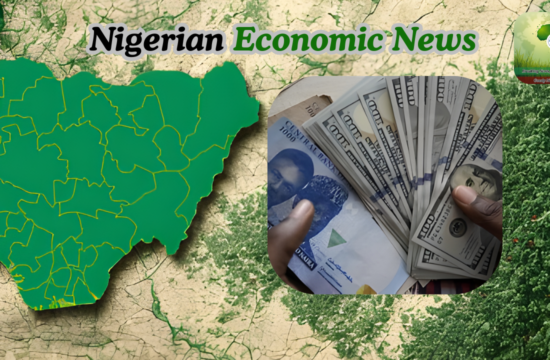The Nigerian Naira held steady at the official foreign exchange window on Friday, October 24, 2025, even as it weakened further on the parallel (black) market, widening the gap between both exchange rates.
According to data monitored by Naija News, the Naira traded around ₦1,460 per dollar at the Investors’ and Exporters’ (I&E) window — a marginal decline compared to earlier in the week.
However, on the streets, where cash transactions dominate, the U.S. dollar exchanged between ₦1,495 and ₦1,515/$1, based on reports from dealers in Lagos and other major commercial cities.
Vanguard also reported that some cash deals closed as high as ₦1,515 per dollar, bringing the average parallel market rate to about ₦1,500/$1.
While businesses and importers accessing foreign exchange through official channels continue to transact near ₦1,460/$1, individuals buying cash dollars for travel, remittances, or small-scale trade are paying the higher parallel market rates.
This growing rate disparity is pushing up the cost of imported goods, including food items, electronics, and vehicle parts, as well as overseas tuition and travel expenses.
Foreign exchange operators note that the gap has become more noticeable in recent weeks amid rising cash demand among traders and travellers.
Market analysts say the persistent spread between the two rates reflects differences in dollar liquidity, access to official supply, and overall market confidence.
They credit Central Bank of Nigeria (CBN) interventions at the I&E window and recent monetary tightening measures for helping to maintain relative stability at the official end despite ongoing pressure in the parallel market.
Experts, however, warn that sentiment and speculation continue to drive informal market activity, especially when access to official dollar supply becomes limited.
Traders and analysts are closely monitoring weekly FX turnover, potential CBN interventions, and global dollar trends to determine short-term market direction.
They note that if official dollar inflows through the FMDQ/NAFEM platform increase in the coming days, the Naira could hold or even strengthen at the official window. Conversely, persistent cash demand and speculative buying may keep the black market premium elevated.
“The CBN’s consistent support is helping the official rate remain stable for now, but the black market remains highly sensitive to cash shortages and investor sentiment,” one financial analyst told reporters.
The Naira has faced sustained downward pressure in recent months due to growing dollar demand for imports, foreign tuition, and international travel.
Despite these challenges, CBN reforms, tighter monetary policies, and steady foreign inflows have helped limit volatility in the official market.
Analysts conclude that the Naira’s short-term outlook will depend largely on continued CBN interventions, investor confidence in ongoing monetary reforms, inflation trends, and oil revenue performance.












